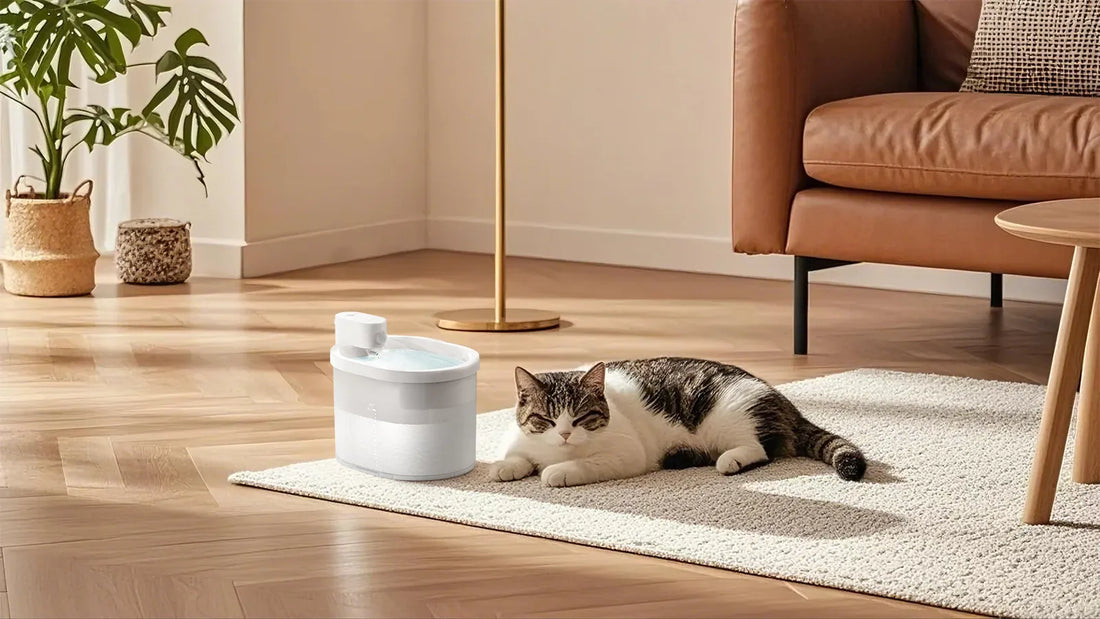If you've ever caught your dog munching on cat poop from the litter box, you're not alone. This behavior, known as coprophagia, is more common than you might think. While it may seem gross to us, there are several reasons why dogs engage in this behavior. Understanding the underlying causes can help you take steps to prevent it and ensure your pet's health and well-being.
Understanding Coprophagia
Coprophagia is the scientific term for the consumption of feces. While it's a natural behavior in some animals, it can be concerning when it involves domestic pets. Dogs, in particular, are known to eat their own feces or those of other animals, including cats. This behavior can be influenced by a variety of factors, ranging from nutritional deficiencies to behavioral issues.
Nutritional Deficiencies
One of the primary reasons dogs eat cat poop is due to nutritional deficiencies. Cat food is typically higher in protein and fat compared to dog food. When a dog consumes cat feces, they may be seeking out these additional nutrients. If your dog's diet is lacking in essential vitamins and minerals, they might turn to cat poop as a supplement. Ensuring your dog has a balanced diet can help reduce this behavior.
Behavioral Factors
Behavioral issues can also play a significant role in coprophagia. Dogs are naturally curious creatures, and they often explore their environment with their mouths. Eating cat poop can be a result of this curiosity. Additionally, dogs may eat feces as a way to seek attention from their owners. If your dog notices that eating cat poop gets a reaction from you, they might continue the behavior to gain your attention.
Instinctual Behavior
In some cases, eating cat poop can be an instinctual behavior. In the wild, dogs and their ancestors would consume feces to keep their dens clean and to avoid attracting predators. While domestic dogs don't face the same threats, this instinct can still drive them to eat feces, including cat poop. Understanding this natural behavior can help you approach the issue with empathy and patience.
Health Concerns
Eating cat poop can pose health risks to your dog. Cat feces can contain parasites, bacteria, and other pathogens that can make your dog sick. Additionally, if your cat is on medication, the feces could contain traces of the medication, which can be harmful to your dog. It's essential to monitor your dog's health and consult with a veterinarian if you notice any signs of illness after they've eaten cat poop.
Preventing Coprophagia
There are several strategies you can use to prevent your dog from eating cat poop. One effective method is to keep the litter box out of your dog's reach. You can use baby gates or place the litter box in a location that your dog can't access. Another approach is to clean the litter box regularly to remove any temptation. Additionally, providing your dog with plenty of mental and physical stimulation can help reduce their desire to engage in coprophagia.
Training and Positive Reinforcement
Training your dog to avoid the litter box can also be effective. Use positive reinforcement techniques to reward your dog for staying away from the litter box. You can also teach them the 'leave it' command to discourage them from eating cat poop. Consistency and patience are key when training your dog to break this habit.
Consulting with a Veterinarian
If your dog continues to eat cat poop despite your efforts, it's a good idea to consult with a veterinarian. They can help rule out any underlying health issues and provide additional guidance on how to address the behavior. Your vet may also recommend dietary changes or supplements to ensure your dog is getting the nutrients they need.
While it may be unsettling to see your dog eating cat poop, understanding the reasons behind this behavior can help you take the necessary steps to prevent it. By addressing nutritional deficiencies, providing mental and physical stimulation, and using positive reinforcement, you can help your dog break this habit. Remember, patience and consistency are key, and consulting with a veterinarian can provide additional support. With the right approach, you can ensure your dog's health and well-being while keeping your home clean and safe.

![[🎃Halloween Sale]UAHPET Stainless Steel Self-Cleaning Cat Litter Box](http://www.uahpet.com/cdn/shop/files/1-cat-litter-box.jpg?v=1759128420&width=1600)












